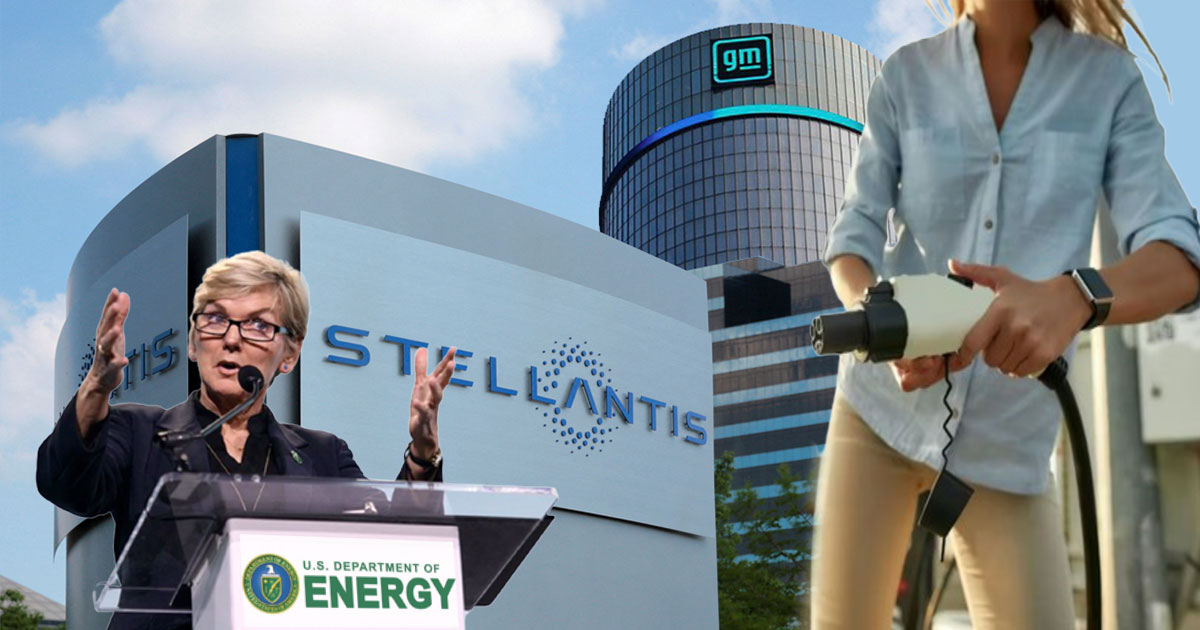Biden’s New Plan: $1.1 Billion to Stellantis, GM EV Plants

Federal Grants Propel Stellantis and GM into EV Future
The Biden administration has unveiled a significant plan to bolster electric vehicle (EV) production, awarding nearly $1.1 billion in grants to General Motors (GM) and Stellantis. This strategic move aims to transform existing plants into hubs for manufacturing EVs and components, marking a major step toward a greener automotive industry.
A New Era of Automotive Manufacturing
The Department of Energy (DOE) has announced a total of $1.7 billion in planned grants to convert 11 “at-risk” plants across eight states. This initiative is expected to enable the production of one million EVs annually, retain 15,000 existing jobs, and create 3,000 new positions. Energy Secretary Jennifer Granholm highlighted these awards as a key element of the Biden administration’s industrial strategy, emphasizing the modernization of historical auto manufacturing facilities.
Federal Support for EV Transition
Over a decade ago, it became evident that automakers needed a strong federal partner to compete globally, especially as other countries heavily subsidized their auto industries. This massive investment is designed to support U.S. automakers in embracing the future of transportation.
Grants Distribution Across Key States
The awarded grants will be distributed among plants in Michigan, Ohio, Pennsylvania, Georgia, Illinois, Indiana, Maryland, and Virginia. These states, crucial for the upcoming presidential election, will see significant investment in their local economies.
General Motors: Leading the Charge
General Motors will receive $500 million to convert its Lansing Grand River Assembly Plant in Michigan to EV production. While specific details about the future EV models are yet to be disclosed, GM has committed to continuing the production of the Cadillac CT4 and CT5 at the plant.
Stellantis: Expanding Electric Capabilities
In a noteworthy move, Stellantis will receive $334.8 million to convert the shuttered Belvidere Assembly plant in Illinois for EV production and $250 million to transform its Indiana Transmission Plant in Kokomo for EV component manufacturing. This comes on the heels of Stellantis’s recent agreement to invest in a new $3.2 billion battery plant and a $1.5 billion mid-size truck factory in Illinois.
Broader Impact on the Automotive Industry
The grants will also benefit other key players in the automotive supply chain. Hyundai Mobis, operating as a Stellantis supplier in Ohio, will receive $32 million to produce plug-in hybrid components and battery packs. Harley-Davidson will get $89 million to expand its York, Pennsylvania plant for EV motorcycle manufacturing. Blue Bird, a prominent school bus manufacturer, will be awarded $80 million to convert a former Georgia plant for electric school bus production. Engine company Cummins will receive $75 million to convert part of its Indiana plant to make zero-emission components and electric powertrain systems.
Support for Volvo and ZF North America
The Volvo Group will benefit from $208 million to upgrade plants in Maryland, Virginia, and Pennsylvania, boosting their EV production capacity. ZF North America will receive $157 million to convert part of its Marysville, Michigan plant for EV component production.
Environmental and Economic Reviews
Before finalizing these awards, the DOE will complete negotiations with the companies regarding milestones and other requirements. Environmental reviews will also be conducted to ensure compliance and sustainability.
Political and Economic Implications
President Joe Biden’s administration has been actively pushing for increased EV production, introducing new tax incentives, funding EV charging stations, and implementing stricter emissions rules to drive EV sales. These grants are part of a broader strategy to support the automotive industry’s transition to electric power, while also courting union workers in key battleground states.
Opposition and Future Prospects
Former President Donald Trump has criticized Biden’s EV policies, pledging to reverse them if re-elected. Despite the political contention, the Biden administration continues to reassure autoworkers that the shift to EVs will not lead to job losses but rather create new opportunities.
Conclusion
The Biden administration’s nearly $1.1 billion grant to General Motors and Stellantis marks a significant step toward a cleaner, more sustainable automotive industry. By investing in the conversion of existing plants to produce electric vehicles and components, the administration aims to retain and create jobs, support local economies, and position the U.S. as a leader in the global EV market.
Final Thoughts
This substantial investment reflects the Biden administration’s commitment to modernizing the U.S. automotive industry and accelerating the transition to electric vehicles. By supporting key players like General Motors and Stellantis, the administration aims to drive economic growth, create jobs, and reduce emissions, ultimately contributing to a more sustainable future.

